The Master of Science Civil Engineering Program at the National University of Technology (NUTECH), Islamabad, is designed to develop future-ready engineers equipped to meet the evolving challenges of infrastructure, urban development, and sustainability. Our program offers an ideal blend of theoretical knowledge and practical experience, fostering innovation and excellence in civil engineering.
Students are engrossed in a cutting-edge curriculum that spans key areas such as structural engineering, transportation engineering, geotechnical engineering, and water resources engineering. Emphasis is placed on industry-relevant projects and applied research, enabling students to engage with real-world challenges and contribute to impactful solutions. Guided by a team of highly qualified faculty members, students benefit from mentorship and
insights drawn from both academia and industry. NUTECH’s state-of-the-art laboratories and research facilities further empower students to explore, experiment, and excel in their academic and professional pursuits.
MS Civil Engineering be offered to graduate:
The graduates will be able to
The minimum requirements for admission in MS CE degree program are:
The minimum duration for completion of MS CE degree is 1.5 years. The HEC allows a maximum period of four years to complete MS CE degree requirements. Total Credit hours are 30.
The Master of Science in Civil Engineering is offered with two options:
Option 1 : Completion of 24 credit hours of course work and 6 credit hours for Thesis
Option 2: Completion of 30 credit hours of coursework
To become eligible for award of MS degree, a student must satisfy the following requirements:
|
Semester- I |
||
|
Course Code |
Course Title |
Credits |
|
CE-6xxx |
Core Course - I |
3(3-0) |
|
CE-6xxx |
Core Course - II |
3(3-0) |
|
CE-7xxx |
Elective Course - I |
3(3-0) |
|
RM-6000 |
Research Methodology |
- |
|
|
Total |
09 |
|
Semester-II |
||
|
CE-6xxx |
Core Course – III |
3(3-0) |
|
CE-6xxx |
Core Course – IV |
3(3-0) |
|
CE-7xxx |
Elective Course – II |
3(3-0) |
|
CE-7xxx |
Elective Course - III |
3(3-0) |
|
|
Total |
12 |
|
Semester- III |
||
|
CE-7xxx |
Elective Course-IV |
3(3-0) |
|
CE-8999/CE7xxx |
Research Thesis/Two Elective Courses |
6(0-6)/6(6-0) |
|
|
Total |
03+06=09 |
|
|
Total Credit Hours |
30 |
|
Core Courses |
|
|
Course Title |
Credit Hours |
|
Advanced Soil Mechanics |
3 |
|
Transportation Planning and Engineering |
3 |
|
Hydraulic Structures |
3 |
|
Advanced Concrete Technology |
3 |
|
Research Methodology |
- |
|
Elective Courses |
|
|
Advanced Structural Analysis |
3 |
|
Advanced Reinforced Concrete |
3 |
|
Properties of Structural Materials |
3 |
|
Prestressed Concrete |
3 |
|
Bridge Engineering |
3 |
|
Structural Dynamics |
3 |
|
Advanced Steel Structures |
3 |
|
Finite Element Method |
3 |
|
Advanced Solid Mechanics |
3 |
|
Foundation Engineering |
3 |
|
Deep Foundations |
3 |
|
Geotechnical Investigations |
3 |
|
Soil Improvement Techniques |
3 |
|
Rock Mechanics |
3 |
|
Earth Retaining Structures |
3 |
|
Soil Dynamics |
3 |
|
Design of Tunnel & Underground Structures |
3 |
|
Tunnel Construction Methods |
3 |
|
Pavement Analysis and Design |
3 |
|
Traffic Engineering and Management |
3 |
|
Railway Engineering |
3 |
|
Geometric Design and Highway Safety |
3 |
|
Traffic Impact and Safety Studies |
3 |
|
Hydropower Engineering |
3 |
|
Irrigation Engineering and Practices |
3 |
|
Groundwater Engineering |
3 |
|
Application of RS and GIS |
3 |
|
Advance Open Channel Hydraulics |
3 |
|
Soil Erosion and Watershed Management |
3 |
|
Applied Hydrology |
3 |
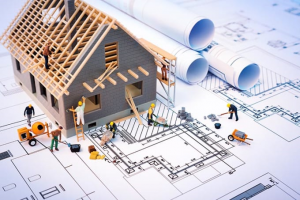
Structural engineering deals with the ‘bones and muscle’ of construction that create man-man structures. Structural engineering theory is based upon applied physical laws and empirical knowledge of the structural performance of different materials and geometries. In addition, it employs the understanding and calculation of the stability, strength, rigidity, and earthquake-susceptibility of structures to be built.
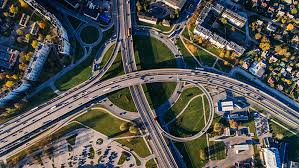
Transportation engineering is a branch of civil engineering that is involved in the planning, design, operation, and maintenance of safe and efficient transportation systems. These systems include roadways, railways, waterways, and intermodal operations.![]()
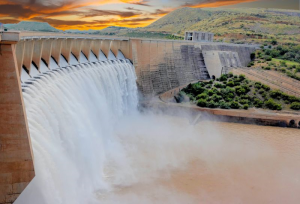
Water resources engineering is the study and management of equipment, facilities, and techniques used to manage and preserve life’s most plentiful resource. In addition to assessing how and the best ways in which to control water as it pertains to water-related activities – such as irrigation, waste disposal and canal development – water resource engineers are also frequently involved in water management to ensure that it’s safe to drink both for humans, plants, and animal usage.
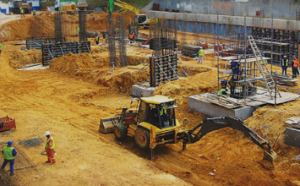
This sub-field of civil engineering is also known as geotechnics. It deals with the engineering behaviour of earth materials. For this, it utilizes the knowledge of other disciplines like hydrology, geology, geophysics, etc. Its applications can be found in mining, offshore constructions, petroleum engineering and more.
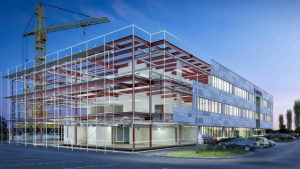
Construction engineering and management refers to the use of critical thinking in technical and scientific fields to improve a construction project. It enables engineers to oversee a building project from start to finish, coordinating all the different professionals involved in such a project, including architects, builders, electricians, plumbers, and financiers. Much of construction management involves keeping risk to a minimum by focusing on safety and compliance with local, state, and federal building codes. In addition, it employs new technologies such as building information modelling, virtual reality, and other visualization tools to improve construction techniques.
| Ser No | Publication Title | Authors | Category | Year of Publication |
| 1 | Evaluation of a gamified e-learning platform to improve traffic safety among elementary school pupils in Belgium | Dr. SARMAD RIAZ | Journal | 2019 |
| 2 | Observing the observation of (vulnerable) road user behaviour and traffic safety: A scoping review | Journal | 2019 | |
| 3 | Evaluation of a Road Safety Education Program Based on Driving Under Influence and Traffic Risks for Higher Secondary School Students in Belgium | Journal | 2019 | |
| 4 | The State-of-the-Art in the application of Artificial Intelligence-Based Models for Traffic Noise Prediction | Journal | 2024 | |
| 5 | Serviceability Analysis of Pedestrian Overhead Bridges and Underpasses | Journal | 2023 | |
| 6 | Strategic Utilization of Microsimulation for Sustainable Traffic Analysis and Intersection Improvement | Journal | 2023 | |
| 7 | Child Pedestrian Safety: Study of Street-Crossing Behaviour of Primary School Children with Adult Supervision | Journal | 2022 | |
| 8 | Conservation environments’ effect on the compressive strength behaviour of wood–concrete composites | Journal | 2022 | |
| 9 | Sub-Surface Geotechnical Data Visualization of Inaccessible Sites Using GIS | Journal | 2022 | |
| 10 | Study using machine learning approach for novel prediction model of liquid limit | Journal | 2022 | |
| 11 | Integration of gamification in a traffic education platform for children | Conference | 2018 | |
| 12 | A framework for sustainable transport using microsimulation-Evaluation of traffic progression at an intersection in Rawalpindi,Pakistan | Conference | 2024 | |
| 13 | Development of a digital learning platform embedded with gamification elements to improve traffic insight among pupils of elementary school | Conference | 2018 | |
| 14 | Observing observation of road user behaviour: A scoping review into current practices in scientific literature. | Conference | 2017 | |
| 15 | Observing observation of road user behaviour: A scoping review into current practices in scientific literature. | Conference | 2017 | |
| 16 | Simulation-Based Site Amplification Model for Shallow Bedrock Sites in Korea | Dr. M. AQIB | Journal | 2021 |
| 17 | A Site-Specific Response Analysis: A Case Study in Hanoi, | Journal | 2020 | |
| Vietnam | ||||
| 18 | Development of Simulation Based p-Multipliers for Laterally Loaded Pile Groups in Granular Soils using 3D Nonlinear Finite Element Model | Journal | 2020 | |
| 19 | Evaluation of Site Amplification Factors for Shallow Rock Sites of Islamabad, Pakistan | Journal | 2021 | |
| 20 | Liberation Studies of Padhrar Coal By Using Fractionation Method, XRD Analysis and Megascopic and Microscopic Techniques | Journal | 2016 | |
| 21 | Evaluation of Influence of Shear Strength Correction Through a Comparative Study of Nonlinear Site Response Models | Journal | 2021 | |
| 22 | A site-specific response analysis: a case study in Hanoi, Vietnam. | Journal | 2020 | |
| 23 | Development of simulation-based p-multipliers for laterally loaded pile groups in granular soil using a 3D nonlinear finite element model. | Journal | 2020 | |
| 24 | Evaluation of the influence of shear strength correction through a comparative study of nonlinear site response models. | Journal | 2020 | |
| 25 | Evaluation of seismic site amplification using 1D site response analyses at Ba Dinh square area, Vietnam | Journal | 2021 | |
| 26 | Site-specific seismic hazard analysis of monumental site Dharahara, Kathmandu, Nepal. | Journal | 2022 | |
| 27 | Numerical response of pile foundations in granular soils subjected to lateral load. | Journal | 2022 | |
| 28 | Development of site classification system and seismic site coefficients for Korea. | Journal | 2022 | |
| 29 | Estimation of VS30 using shallow depth time-averaged shear wave velocity of Rawalpindi–Islamabad, Pakistan. | Journal | 2023 | |
| 30 | Evaluation of Empirical SPT N-Vs Correlations Using 1D Site Response Analysis for Shallow Bedrock Sites in Islamabad, Pakistan. | Journal | 2024 | |
| 31 | Importance of Implied Strength Correction for 1D Site Response at Shallow Sites at a Moderate to Low Seismicity Region | Conference | 2018 | |
| 32 | Seismic Retrofitting of Reinforced concrete shear walls using carbon fiber reinforced polymers(CFRP) | Engr. ALI SIDDIQUE | Journal | 2020 |
| 33 | Seismic assesment of mid-rise buildings in Pakistan | Conference | 2018 | |
| 34 | Seismic assesment of high-rise buildings in Pakistan | Conference | 2019 | |
| 35 | Spalling sensitivity and mechanical response of an ecofriendly sawdust high strength concrete at elevated temperatures | Engr. EHSAN ULLAH KHAN | Journal | 2020 |
| 36 | An efficient approach to incorporate soil-structure interaction effects for practicing engineers | Engr. M. WAQAS | Conference | 2019 |
| 37 | Self-Consolidating Paste Systems Containing Acacia Nilotica Gum Powder | Engr. SANA GUL | Journal | 2019 |
| 38 | Use of Acrylic polymer for stabilization of clayey Soil | Journal | 2018 | |
| 39 | Limitations of Non-linear Analysis of Multi-storey Structures - A Review | Conference | 2020 | |
| 40 | Concrete Containing Recycled Rubber Steel Fibre | Conference | 2019 | |
| 41 | Seismic Construction Practices of Commercial RCC Buildings via Visual Inspection in Developing Countries. | Conference | 2018 | |
| 42 | Using Polypropylene Fibers in Concrete to achieve maximum strength | Conference | 2018 | |
| 43 | DYNAMIC NAIVE BAYES CLASSIFIER FOR HYDROLOGICAL DROUGHT RISK ASSESSMENT | Dr.Nouman | Journal | 2023 |
| 44 | Serviceability Analysis of Pedestrian Overhead Bridges and Underpasses. | Journal | 2023 | |
| 45 | Application of hidden Markov Bayesian classifier for probabilistic assessment of meteorological and hydrological drought taking concept of propagation. | Journal | 2020 | |
| 46 | Investigating effect of climate change on drought propagation from meteorological to hydrological drought using multi-model ensemble projection. | Journal | 2019 | |
| 47 | Probabilistic characteristics of drought propagation from meteorological to hydrological drought in South Korea. | Journal | 2019 | |
| 48 | Probabilistic analysis of drought propagation over the Han River basin under climate change. | Journal | 2019 | |
| 50 | Probabilistic characteristics of lag time between meteorological and hydrological droughts using a Bayesian model. | Journal | 2018 | |
| 51 | Feasibility assessment of newly isolated calcifying bacterial strains in self-healing concrete | Dr.Nafeesa | Journal | 2023 |
| 52 | Experimental evaluation of bacterial self-healing concrete embodying Bacillus pumilus cured in normal and accelerated modes | Journal | 2023 | |
| 53 | Feasibility assessment of microwave-cured lightweight aggregate concrete by mineral encapsulated self-healing | Journal | 2023 | |
| 54 | Self-Healing Nano-Concrete for Futuristic Infrastructures | Journal | 2022 | |
| 55 | Bio-inspired self-healing and self-sensing cementitious mortar using Bacillus subtilis immobilized on graphitic platelets | Journal | 2022 | |
| 56 | Mechanical and energy performance of variably cured Effective Microorganisms cementitious composite designed via Taguchi | Journal | 2021 | |
| 57 | Isolation of alkaliphilic calcifying bacteria and their feasibility for enhanced CaCO3 precipitation in bio-based cementitious composites | Journal | 2021 | |
| 58 | Synthesis and characterization of bio- immobilized nano/micro inert and reactive additives for feasibility investigation in self-healing concrete | Journal | 2019 | |
| 59 | Bio-mineralized self-healing recycled aggregate concrete for sustainable infrastructure | Journal | 2020 | |
| 60 | Bio-immobilized Limestone Powder for Autonomous Healing of Cementitious Systems: A Feasibility Study | Journal | 2018 | |
| 61 | Bio- inspired self- healing cementitious mortar using Bacillus subtilis immobilized on nano/micro additives | Journal | 2018 | |
| 62 | Economic assessments of inhibiting technologies for greenhouse gas emission | Conference | 2024 | |
| 63 | Economic assessment and environmental challenges of CO2 storage through mineral carbonation | Conference | 2024 | |
| 64 | Influence of bio-immobilized lime stone powder on self-healing behaviour of cementitious composites | Conference | 2018 | |
| 65 | Improving the mechanical properties of cementitious composites with graphite nano/micro platelets addition | Conference | 2018 | |
| 66 | Investigation of shear capacity of Pre-stressed concrete beams using Response-2000 | Conference | 2017 | |
| 67 | BIM AIDED INFORMATION AND VISUALIZATION REPOSITORY FOR MANAGING CONSTRUCTION DELAY CLAIMS | Engr. ALI TARIQ | Journal | 2021 |
| 68 | Servicibility Analysis of Pedestrian Overhead Bridges and Underpasess | Engr. Fazal e Gahfoor | Journal | 2023 |
| 69 | Strategic Utilization of Microsimulation for Sustainable Traffic Analysis and Intersection Improvement | Journal | 2023 | |
| 70 | To study the serviceability of Pedestrian Bridges and Underpasses in Pakistan | Conference | 2021 | |
| 71 | Study of Gross Vehicular Weight and Axle Configuration of Heavy Vehicular Transport Specifications in Peshawar | Conference | 2019 | |
| 72 | A framework for sustainable transport using microsimulation-Evaluation of traffic progression at an intersection in Rawalpindi,Pakistan | Conference | 2024 |